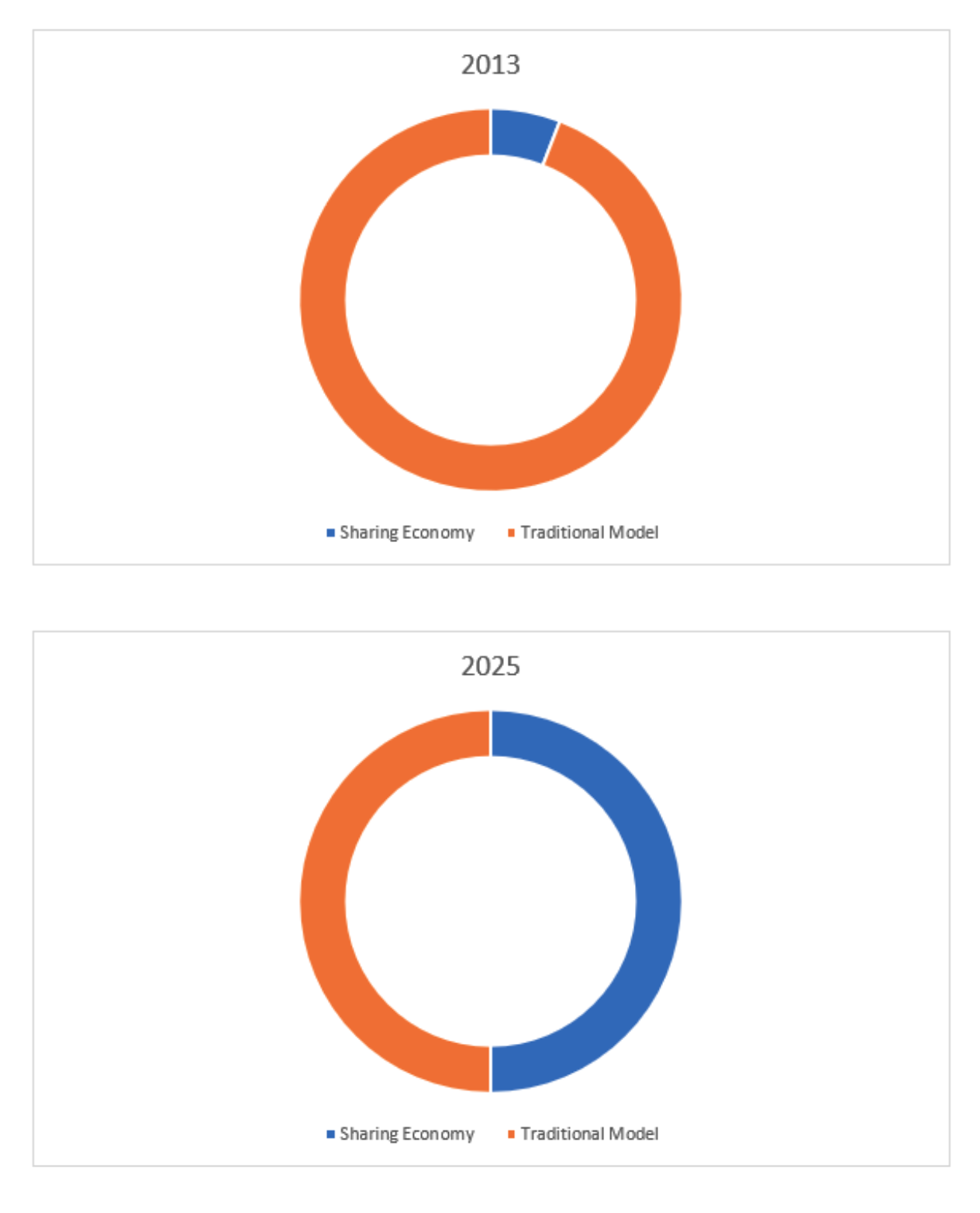The sharing economy is all the rage these days. And why wouldn’t it be? It’s a great way to save money and resources in an eco-conscious way. There are so many opportunities to get involved too. But what is it all about? And how do you get started?
The sharing economy is a way for communities to share their resources in sensible ways. And thanks to the internet, the concept of community has gone global. We can now share pretty much anything at the click of a button.
We can trade used clothes, stay in people’s homes, hitch a ride in someone else’s car, and do it all safely and legitimately through apps like Vinted, Airbnb, and Uber.
You’re most likely already involved in the sharing economy in one way or another. Whether you’ve taken an Uber, bagged a loaf of bread through Olio, or borrowed a friend’s car, you’ve shared resources and therefore taken part in this old-slash-new way of doing things.
The sharing economy is basically the 21st-century version of Woodstock: it’s a movement that brings people together to share resources and experiences in a fun, positive way.

Why should you share in the sharing economy?
We’re living through a climate emergency. Sharing resources is more important than ever. Young people are positioned to lead the charge in the sharing economy – a bold, climate-revolutionary movement that is rejecting ownership to help share resources and save the planet.
And the revolution is here and now.
While sharing economy companies in the five sectors most affected by this new trend earned 15 billion dollars in 2013, it is estimated that they will earn $335 billion by 2025. Sharing economy apps and businesses are gaining ground as the traditional operating model is flailing.
In 2013, traditional businesses earned around $240 billion as compared to the $15 billion earned by similar sharing economy businesses. But by 2025, both models are projected to have an equal piece of the pie, earning $335 billion respectively.
To illustrate the growth of the sharing economy, we’ve created these two pie charts inspired by this PWC report.

The sharing economy reduces consumption, saving money and resources. It also helps build community and foster connection – something that is essential in our fast-paced, individualistic world. In a recent report, ISO recognised that this shift away from ownership can help us use our planet’s resources more efficiently and have a more positive environmental impact overall.

Carbon-offset your journey with Zixty
Here at Zixty, we’re not just about giving you an EcoScore and leaving you to it. We like to help you make an impact here and now.
That’s why every time you take out a policy with us, we’ll plant a tree. But we’re not stopping there. We’ll also carbon offset your journeys up to 100 miles a day every day by planting trees.
And, because we calculate your carbon offset amount based on a median score of 4-6, if you scored any higher, your journey was technically carbon negative. That’s right! You’re basically planting trees and helping save the planet on your morning commute.

How temporary car insurance can help you take part in the sharing economy
A big part of the sharing economy is asking yourself whether you need to own specific things that you’d previously taken for granted. Let’s look at car ownership.
Do you need a car? Or can you take the train to work? Or maybe even cycle or walk? And for those rare occasions when you do need a car, can you just borrow your friends and buy them a bottle of wine to say thanks?
Maybe you’ve realised owning a car isn’t a necessity.
But you’ll still need insurance even if you are planning on only driving someone else’s car occasionally. And becoming a named driver on someone else’s insurance can be such a hassle. Especially when you know you’ll only be driving the car a few times a year, if that.
And that’s where temporary car insurance like Zixty comes in. Temporary car insurance can be arranged in minutes, can usually last from between an hour or so to a few weeks, and could save you more money over a year than annual insurance if you don’t drive often.
Temporary car insurance enables you to partake in the sharing economy by providing quick, flexible cover that gets you on the road in minutes. You don’t need your own car to take out temporary car insurance, just your friend’s permission to borrow theirs. Like we said, it’s a win-win situation for you and the environment.
Taking part in the sharing economy: An overview
The sharing economy is all about sharing resources within your community. Whether that’s through an app like Airbnb or through an informal arrangement with your friend, there are lots of ways to take part. And products like temporary car insurance make it easy to jump straight in and benefit from this new way of doing things.